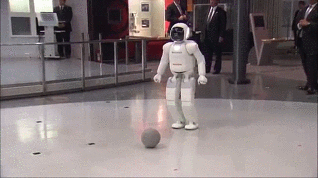“It Has Been Seeping Into Our Lives In All Sorts Of Ways”
October 12, 2016 in Excerpts, Politics, Science/Tech | Permalink
In yesterday’s post about Charlie Rose interviewing a fellow robot, I argued that the humanoid form we envision when we consider AI is a distraction from the actual creeping effects of the technology, which has remarkably powerful potential for boon and bane. Like electricity, it can covertly make everything run–or run amok.
In the Wired issue guest edited by President Obama, future ruler of Mars, EIC Scott Dadich mediates a conversation about AI between the leader of the free world and MIT Media Lab director Joi Ito. Casualty of an election cycle dominated by the violent jerks of a masturbating, orange-faced clown has been substantive talk about Artificial Intelligence, automation, the Internet of Things, biotech, etc. Those are discussions we dearly need to have, so I’m glad the publication engaged on some of these issues with the sitting President, who seems to have a good understanding of the challenges ahead (ethical, economic, etc.).
An excerpt:
Scott Dadich:
I want to center our conversation on artificial intelligence, which has gone from science fiction to a reality that’s changing our lives. When was the moment you knew that the age of real AI was upon us?
Barack Obama:
My general observation is that it has been seeping into our lives in all sorts of ways, and we just don’t notice; and part of the reason is because the way we think about AI is colored by popular culture. There’s a distinction, which is probably familiar to a lot of your readers, between generalized AI and specialized AI. In science fiction, what you hear about is generalized AI, right? Computers start getting smarter than we are and eventually conclude that we’re not all that useful, and then either they’re drugging us to keep us fat and happy or we’re in the Matrix. My impression, based on talking to my top science advisers, is that we’re still a reasonably long way away from that. It’s worth thinking about because it stretches our imaginations and gets us thinking about the issues of choice and free will that actually do have some significant applications for specialized AI, which is about using algorithms and computers to figure out increasingly complex tasks. We’ve been seeing specialized AI in every aspect of our lives, from medicine and transportation to how electricity is distributed, and it promises to create a vastly more productive and efficient economy. If properly harnessed, it can generate enormous prosperity and opportunity. But it also has some downsides that we’re gonna have to figure out in terms of not eliminating jobs. It could increase inequality. It could suppress wages.
Joi Ito:
This may upset some of my students at MIT, but one of my concerns is that it’s been a predominately male gang of kids, mostly white, who are building the core computer science around AI, and they’re more comfortable talking to computers than to human beings. A lot of them feel that if they could just make that science-fiction, generalized AI, we wouldn’t have to worry about all the messy stuff like politics and society. They think machines will just figure it all out for us.
Barack Obama:
Right.•
Tags: Barack Obama, Joi Ito, Scott Dadich
Subscribe to my free, monthly Substack newsletter, "Books I Read This Month." Some new titles, some older, some rare.
Categories
About
Afflictor.com is the website of Darren D’Addario. Except where otherwise noted, all writing is his copyrighted material. ©2009-18.

